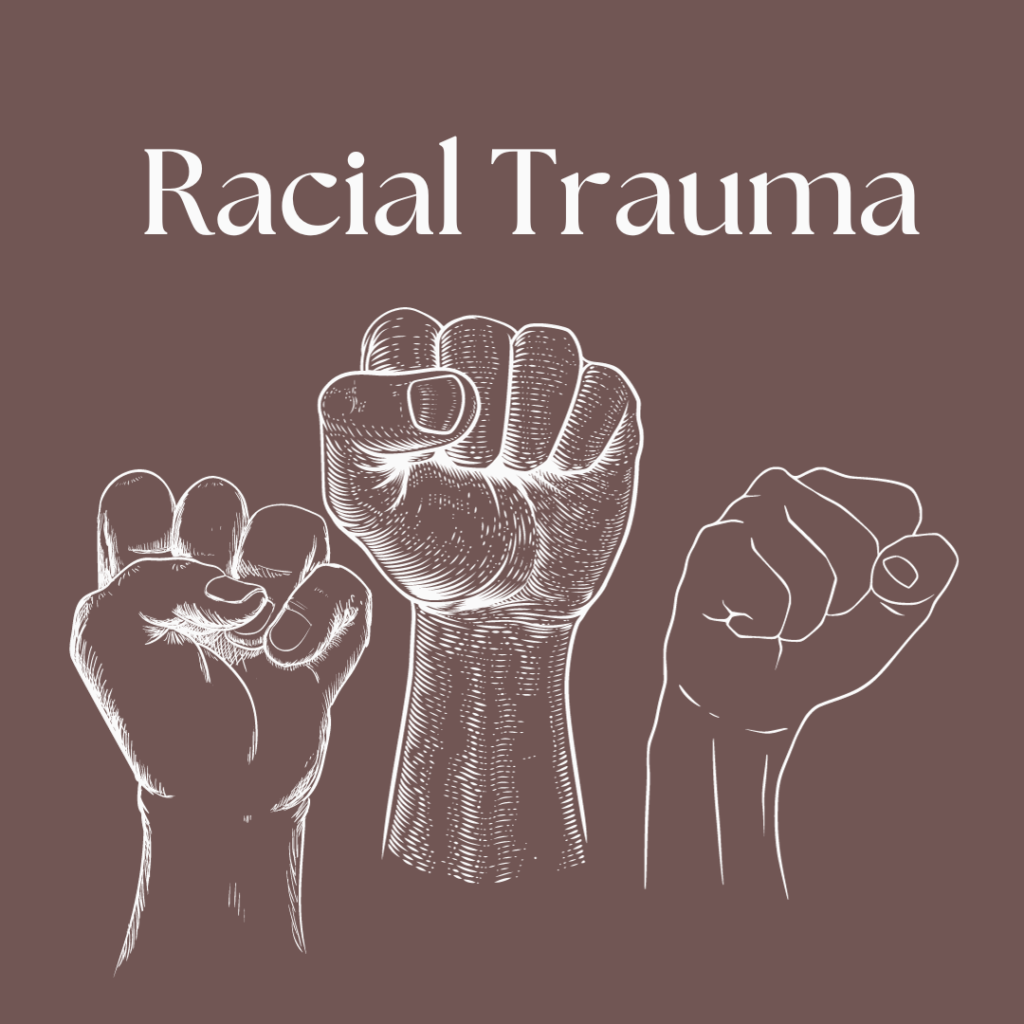“Trauma decontextualized in a person over time can look like personality,” Menakem said. “Trauma decontextualized in a family over time can look like family traits. Trauma decontextualized in people over time can look like culture.” Ressma Menakem
Racial trauma is described as the emotional and psychological distress that individuals and communities experience because of generations of racist policies, institutions, and everyday practices. The embodied emotional and psychological effect of: experiencing or witnessing racial discrimination; microaggressions; racial violence and other forms of racially motivated injustices; can create a sense of not feeling worthy. This trauma can have a drastic effect on one’s mental health, relationships, and community.
Racial trauma can develop in many ways such as anxiety, depression, hypervigilance, emotional numbing, as well as, physical health issues. Racial trauma impacts individuals of any racial or ethnic background; however, individuals who have ancestors who have been historically disenfranchised are more likely to experience extreme negative outcomes . Racial trauma does not only stem from personal experience of discrimination, but it can also be triggered by simply observing racial injustice in media or through lived experiences of others. In addition, racial trauma can be intergenerational as trauma experienced by one generation can impact subsequent generations by taking a toll on one’s mental health and well-being.
When addressing racial trauma, an intricate approach is required that involves coping strategies, therapeutic support, community resilience-building and efforts to combat systemic racism. Policymakers, mental health professionals and community organizations play vital roles when it comes to understanding, recognizing, and addressing the impact racial trauma has on individuals and communities.




